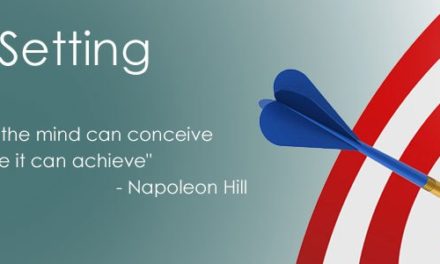Once you attend to your most immediate concerns and needs, you’ve allowed yourself some time to deal with the impact of the layoff, and you’ve established a support system, you are in a position to begin exploring the options available to you.
For many, one of the first thoughts upon learning of a lay-off is, “I need to find another job right away …”. But this is only one of many options. Have you ever heard it said that crisis equals opportunity?
Although that may seem hard to believe at this point in your career, it has proven to be true for many who have been in similar circumstances.” It was the best thing that ever happened to me. “.
Close your critical mind. Open your creative, innovative spirit. Now, in your mind, remove all the barriers (real or imagined) that might interfere with you achieving anything in this world you may wish. Take away the walls of time, money, location, lack of knowledge – all of the obstacles the “real world” might impose on you.
Now, with a mind clear of all obstacles, fantasize about what you would like to do now that you are no longer working at your former job. Let your imagination run wild. For now, avoid practical considerations such as “I need to earn at least $45,000 a year to cover the mortgage and feed the family.”.
There’s plenty of time for reality later. For now, place no restrictions on your options, and dream.
Record your thoughts in detail, below. If you have difficulty visualizing what you would be doing, then record all the features that are clear in your mind. For example: “I would start my workday at 9:00 a.m., and I would only work three days a week. My job would take me to different locations, and I would enjoy all aspects of my job.”.
Before you throw yourself into a search for a new job, take some time to explore what it is that you want thoroughly. If nothing else positive has occurred for you as a result of your layoff, make sure to take full advantage of the opportunity it has provided you wish to re-examine your goals, priorities, needs, and desires. It shouldn’t take long to become reacquainted with yourself, and the rewards could be far-reaching.
To get started, look back at the last activity. What did it tell you about yourself regarding your values, interests, and wishes? It may be useful to have a friend assist you in identifying some of the things that may not be as apparent to you. Or, you may wish to explore these aspects of yourself with the support of a Career Counsellor at your local Career Development Centre or Canada-Alberta Service Centre. Either way, be true to yourself. Write down the things that are important to you, and don’t lose sight of those objectives as you move on.
In addition to clarifying your interests, goals, values, priorities, needs, and desires, take some time to assess the skills you have developed over the years. Consider which of these skills you enjoy using, and which of these skills would be an asset when pursuing future goals. You may discover talents that you would like to develop further or areas of expertise that you would like to share with others.
As you work through your self-exploration, keep in mind your dream. Is it something you can achieve? Are there parts of it that you can turn into reality? Commit yourself to adopt at least a piece of your dream into your life. It may not be easy, but consider the rewards.
NOTE: In considering all your options, you may begin to understand how you can transform your layoff into an opportunity.
New Job/Same Field
These are often the first and only options a laid-off employee gives consideration.
It may be the right choice for you if:
A) There are jobs available in that field in the location you desire.
B) The future outlook for those positions is favourable, and don’t anticipate layoffs soon.
C) You have a good chance of being hired for the jobs you seek as you are a qualified candidate.
D) You enjoy the work.
E) It will aid you in achieving your goals.
Relocating
Moving to another town, city, province or country to pursue employment, education, or new business opportunities, maybe an appealing option for some. This option warrants a considerable amount of research. If indicators suggest that there are plenty of possibilities for new business starts, investigate demographics, markets, industries, trades, developments, etc., to determine if there is a need for the particular type of business you plan to engage. Examine the following:
A) The costs involved in the move.
B) Opportunities are available in the new location considering supply vs. demand.
C) Vacancy rates and costs of housing or accommodation.
D) Cost of living.
E) Unemployment rate.
F) Impact on family, friends, etc
Occupational Change
A viable consideration for many following a layoff is changing the type of work one does. For example: changing from nursing to teaching. The new field of work may be different, or it might include components from the original occupation that the individual enjoyed, such as teaching nursing skills to families involved in-home care programs.
This option might be particularly appealing to you if you jobless where the employment opportunities in that field are few and far between. Some questions to ask yourself regarding a career change:
a) Am I sure I wish to change occupations? What are my reasons?
Have I engaged in career exploration and planning?
C) Have I thoroughly researched my options?
D) Have I chosen a field that is compatible with my values, skills, and interests?
E) Are the prospects for that occupation favourable?
F) Am I willing to update my training or education to find employment in that field?
Further Education/Retraining/Upgrading
A layoff may present the perfect opportunity for returning to learning. There are many alternatives available to individuals seeking additional knowledge and skills, many of which are listed below:
A) Full-time studies.
B) Part-time studies.
C) Distance Learning (correspondence).
D) Apprenticeship (a combination of on-the-job training and formal technical training).
If you are considering one or a combination of these options, examine the following:
i) Will the training I engage in to be recognized by prospective employers, and aid in furthering my career?
Ii) Do I have the money required to complete my training? Or am I eligible for special funding, loans, etc.?
Iii) Have I got the pre-requisites necessary to get into the program?
Iv) Have I researched all the educational/training options and made the best choice for me?
Work Options
With all the changes in the labour market, a variety of work options have emerged. Whether you choose to stay in your current occupation or make a difference, consider these alternatives:
A) Job Sharing – two people share one full-time position, its duties, salary, and benefits.
B) Part-time Work – working less than 30 hours a week in a permanent or temporary position.
C) Temporary Work – provide cover off for personnel on leave with a variety of companies.
D) On-call Work – working when needed, often on short notice.
E) Seasonal Work – working long, regular hours during industries’ peak seasons only.
F) Telecommuting – working at home, connected to the office by phone, fax and computer equipment.
Self-Employment
The trend toward entrepreneurship is growing rapidly. If you are an enterprising individual who enjoys a challenge, you may wish to explore one of the many alternatives in this area:
A) Provide consulting and freelancing services.
B) Purchase a franchise.
C) Develop a partnership.
D) Start a new business.
E) Operate a home-based business.
F) Conduct a mail-order business.
G) Engage in multi-level marketing.
H) Create and market a new product or service.
Retirement or Semi-Retirement
Naturally, this option is not available to everyone at this stage of the game. But for those of you who are considering it, take some time to think through the following:
A) Do I want to retire? Or am I choosing to because I feel I have no alternatives?
B) Am I financially in a position to do so?
C) Have I done any retirement planning?
D) Will retirement or semi-retirement aid me in achieving my goals?
Alternatives To Paid Work
There may still be a few options left that are worth considering. However, they may require some lifestyle changes because these are options that do not result in income. Nevertheless, the potential for rewards is excellent. These include:
a) Bartering or exchanging services and goods instead of cash.
B) Homemaking – in a two-income family, it may be possible for one parent to remain at home.
C) Volunteering – offering your time and skills to an organization can be very rewarding, and has the fringe benefit of increasing your network and potentially leading to paid employment.
Now, take a moment to complete the activity on the next page. Give serious consideration to engaging in career planning if you are unsure about which options suit you best. You can do this on a one-to-one basis with a counsellor, participate in a workshop, or do it on your own using career exploration materials outlined in the resource section of this manual.
Place a checkmark beside the options you have considered, then place your choices in order of priority, for example, 1 = your most appealing option, 2 = your next most attractive, and so on.
Priority Options
_ Engage in career exploration/planning
_ Make an occupational change
_ Attend skill training, upgrading, or post-secondary courses
_ Engage in job search in the present field Seek part-time work
_ Seek full-time work Participate in a job share position
_ Relocate to an area where your skills are in demand
_ Retire
_ Semi-retire
_ Start a business of your own
_ Purchase a franchise
_ Establish a partnership
_ Barter your services and products
_ Engage in volunteer work
_ Other
Once you have done an inventory of your options and listed in order of priority the ones that appeal to you, it is time to gather more information about each option.
NOTE: If you choose an option that involves finding a job, you may need to update your job search skills and resume. You may find it useful to examine the job loss cycle identified by Dr. N. Amundson and Dr. W.Borgen in their publication, At The Controls: Charting Your Course Through Unemployment. Dr.Amundson and Dr. Borgen suggest that job loss and job search may lead to an “emotional roller coaster” for unemployed individuals.
Making a wise choice about which option(s) to pursue is dependent upon thoroughly researching each one. There are two main approaches to gathering the information that will be required for you to make an informed decision: 1) print research and 2) people research.
Print Research
Locate all the current written information available on the option, and spend some time reading about it. Some advantages of print materials include: they’re easy to access, factual, and provide a quick means of locating information. You may also wish to consider other sources such as public libraries, career centers, newspapers, magazines, etc.. The information you gather through print will provide a framework for the second stage of your research.
People Research
Because print materials become outdated quickly and provide the plain facts regarding your options primarily, it is beneficial to supplement the knowledge you obtained through print with information gathered from people who are knowledgeable regarding your options. The information people can provide you with is likely more up-to-date and may contain more details than are available through print resources. To gather information from people, consider doing an information-gathering interview with them, job shadowing, or volunteering.
Once you have gathered all the facts about each of your options, you are in an excellent position to choose the alternative(s) most desirable to you.
Your goal is to make the best possible decision, given the realities of your situation.
Some people, when faced with a significant decision, like to outline the pros and cons of each option, or create a checklist of their needs, desires, etc.. Then they evaluate each opportunity to discover which one best matches their list. Whichever approach you decide to take, make sure you are comfortable with your decision. Avoid making choices based on your desire to please others.
To achieve success, you need to be clear on what success means to you; that is, what it is that you want. It’s not enough to say, “I just want to be happy,” or “I just want a job that fulfills my basic needs.”
© Wordscapes® (David Turner). All Rights Reserved.




